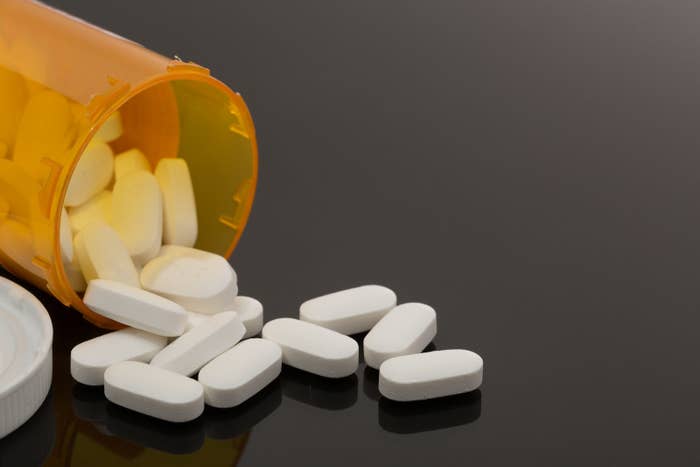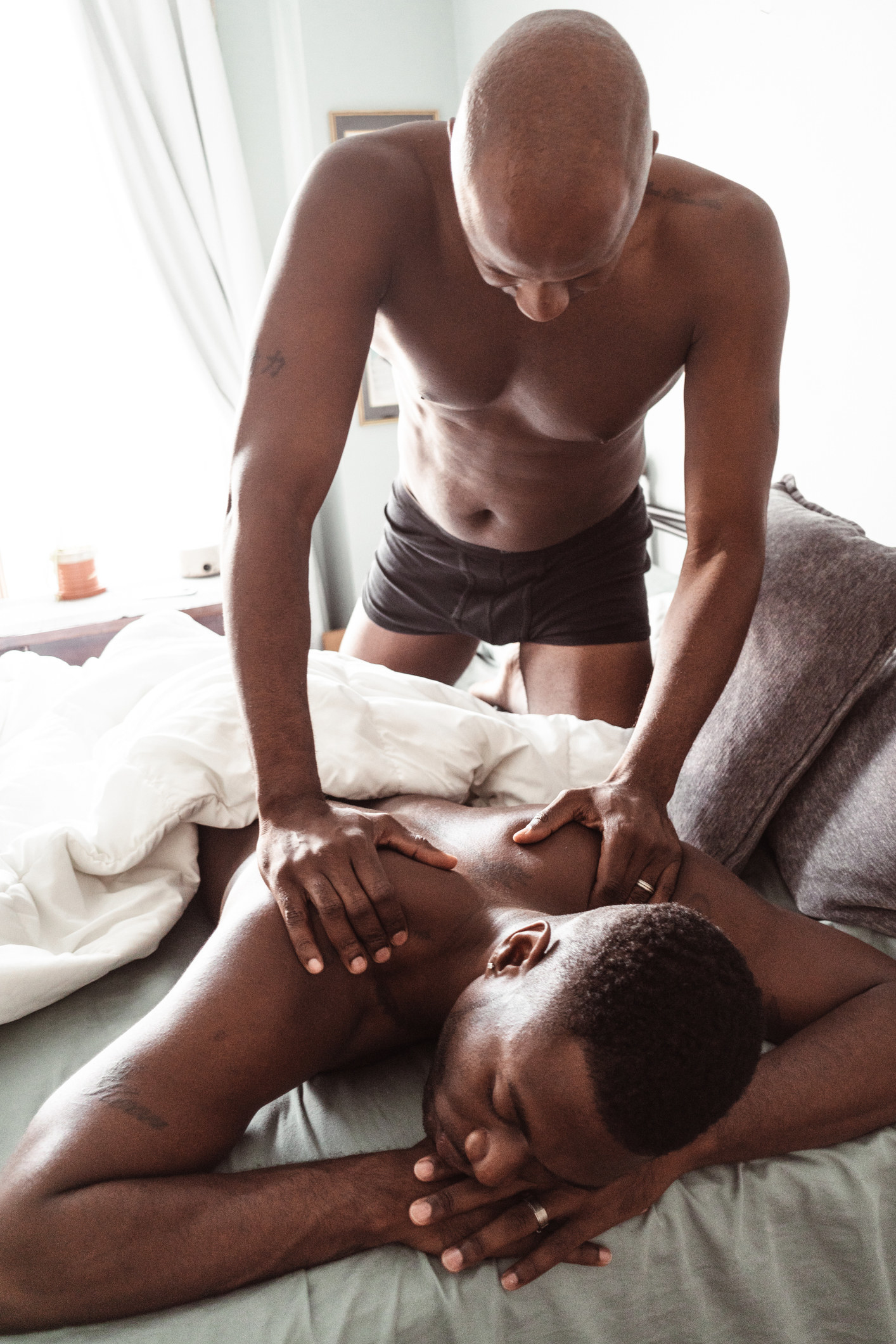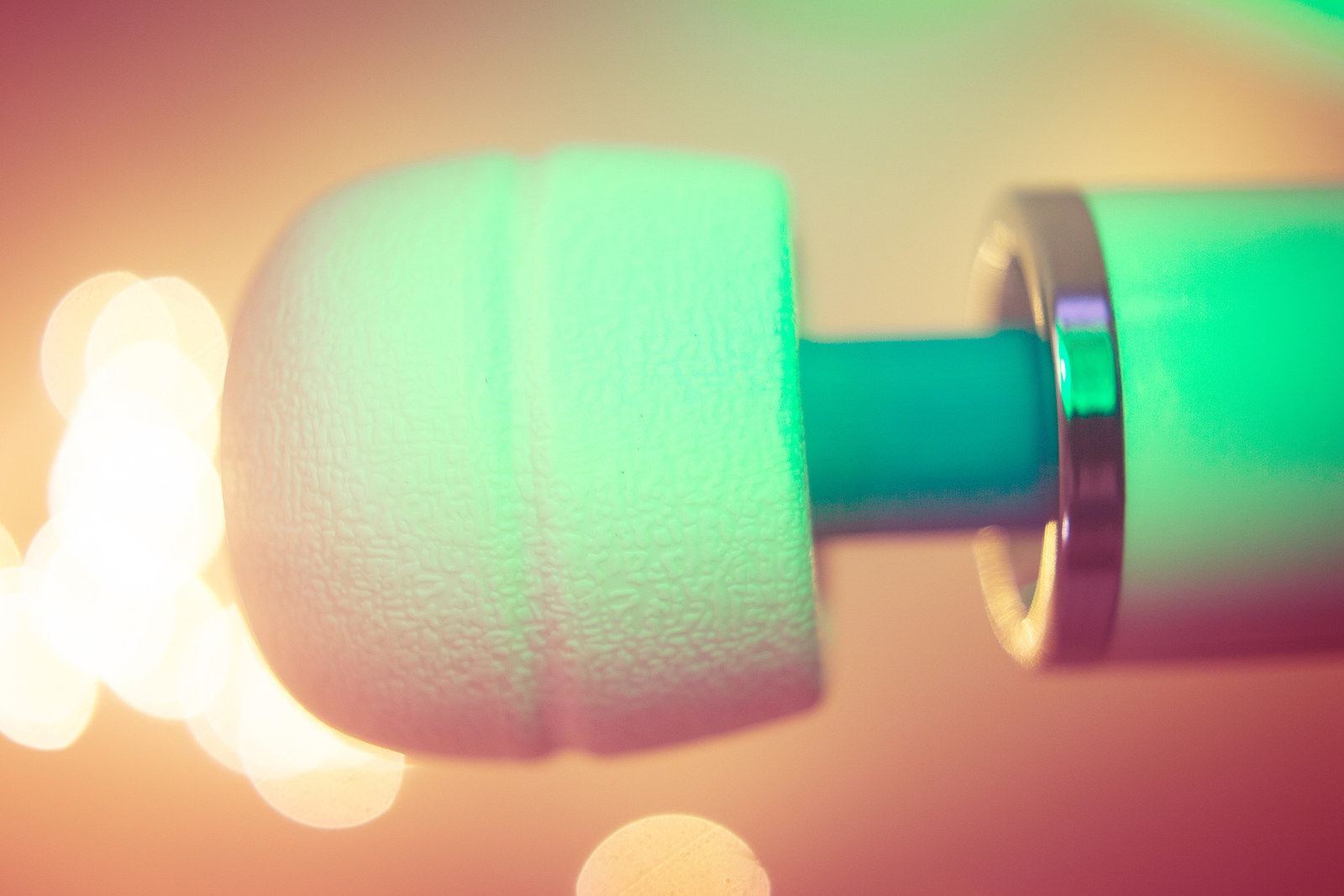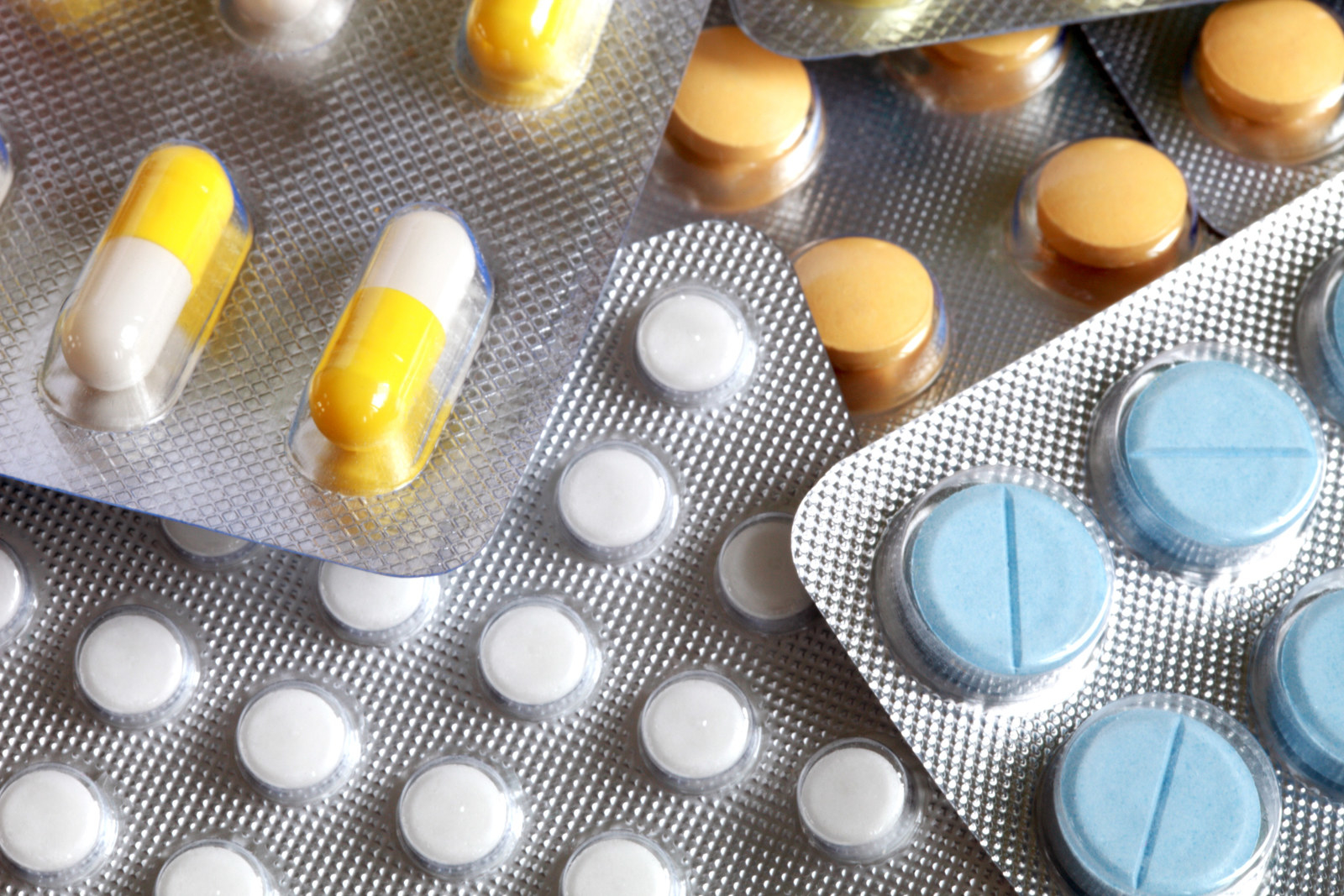Antidepressants can be lifesavers but some of them can also, quite literally, be boner killers.

A whole lot of us are taking antidepressants — almost 13% of teens and adults in the US, according to a report released in 2017 by the National Center for Health Statistics.
One side effect of some of the most commonly prescribed antidepressants is what doctors would call sexual dysfunction. But for those who experience it, it might as well be called ruining something that used to be fun.
Annoyingly, these antidepressants may affect pretty much every part of sex — including wanting it, aka your libido; getting aroused; and actually having an orgasm. And none of that is very fun when you're already dealing with mental health issues.
Having your sex life impacted by medication can be frustrating and feel incredibly isolating, but you're far from alone.
First, let's understand what's going on.

Some of the most commonly prescribed antidepressants are called SSRIs, or selective serotonin reuptake inhibitors. These have well-known brand names like Prozac, Zoloft, Lexapro, and Paxil. They work by making more serotonin, a chemical that acts as a neurotransmitter, available in the brain. Serotonin has been linked to mood, so basically, more serotonin should mean better moods. But serotonin can also have some downsides.
"The fact of the matter is, when we increase serotonin, it increases mood, it decreases anxiety, and it hinders our sexuality," Dr. Kenneth Rosenberg, a New York-based psychiatrist and author who specializes in sexuality, told BuzzFeed News.
That's because serotonin exists in harmony with dopamine in the brain, another mood-affecting chemical. Dopamine can also change your sex drive, so when you increase the serotonin, things can be thrown out of balance.
This imbalance of serotonin, while good for your moods, can affect all aspects of your sex life, from being in the mood, to physical arousal, to your ability to orgasm, said Rosenberg.
He also said the effects can vary from person to person. If you're relatively young and taking a low dose, you may be less likely to experience sexual dysfunction. The opposite may be true if you're older or on a higher dose.
But don't worry. While being on antidepressants can make sex more difficult, it doesn't make it impossible and there are ways to cope.

1. First, realize you're not alone.
If you're already feeling off your game sex-wise, beating yourself up about it isn't going to make things any better.
It can be easy to feel embarrassed or ashamed if antidepressants have changed how you're able to have sex. But if you're already feeling physical changes due to your medication, adding a layer of mental hang-ups around sex is just going to compound the issue.
"People feel so much shame and I often say shame is the biggest obstacle to getting well and staying well," said Rosenberg.
While it's totally understandable to feel that way, you should also know that you're not alone.
Sexual side effects are incredibly common for people who take antidepressants. According to numbers from the Centers for Disease Control and Prevention's National Center for Health Statistics, 12.9% of Americans took antidepressants between 2011 and 2014. And anywhere from 25% to 73% of people taking an SSRI antidepressant report having sexual side effects.
So, take a deep breath, remember that you're not the only one struggling with this, and consider sharing your feelings with your partner, a therapist, or your doctor.
2. Start outside the bedroom and talk to your partner(s).
Good sex always starts before anyone gets into bed. Before sleeping with someone for the first time, it's important to discuss things like consent, boundaries, and turn-ons. But this can also be an opportunity to manage expectations.
If it's someone you feel safe to share with, you could mention that you're on antidepressants and may need a little more time or stimulation to enjoy yourself. Or you could even tell them in advance that orgasm just isn't the goal for you.
If that's not information you want to share for whatever reason, that's fine, too. You can just straight-up tell them what you need to have a good time.
Either way, this takes the pressure off before anyone gets naked.
"Talk to your partner, because even if your brain isn't working properly, your mind may help you overcome that," said Rosenberg.

3. Don't just wait to get turned on — you can make an effort to make it happen.
If whatever worked for you in bed in the past suddenly isn't cutting it, it might be time to get more creative and focus on elevating the things that aren't just genital stimulation.
Maybe that means getting kinky with some role play or bondage or flogging. (See this guide for safe, consensual BDSM tips.)
Maybe that means setting a more sensual mood with candles and music.
Maybe that means asking your partner to give you a massage to get you all fired up.
Antidepressants can sometimes make it feel like you just don't want sex, but that doesn't mean you can't feel desire anymore.
Lori Brotto is a psychologist and professor of medicine at the University of British Columbia and the executive director of Women's Health Research Institute in Vancouver. She told BuzzFeed News that research suggests that desire can be a response to stimuli, you just need to figure out how to trigger it.
"We know that desire is responsive — it happens in response to something that turns you on," she said. "There are deliberate and effortful ways to incorporate triggers to elicit desires."
4. Make sex more about the journey than the destination.
If you're in the middle of sex thinking "I need to come now, I should be coming now," you might just psych yourself out of orgasm altogether.
So try to focus more on the whole experience, the teasing, the caressing, the build-up. If you get there you get there, but give yourself a break and turn down the pressure to perform.
Brotto recommends a mindfulness exercise in which your partner touches you all over, from head to toe, without the goal of arousal in mind. The goal is to just experience that touch in the moment.
"It’s such a powerful, powerful tool for putting people back in touch with what sensations feel like," she said.

5. Bring in some sex toys.
Sex toys are fun in all kinds of ways. They can add some new play to sex but they can also provide stimulation another person just can't.
One of the possible side effects of antidepressants is that you may need more stimulation than you did in the past to have an orgasm and a toy may be able to provide it.
The sex toy possibilities here are pretty endless. Clit vibrators! Butt plugs! Something more heavy-duty like a Hitachi Magic Wand!
"Using sexual toys can be extraordinarily helpful for people," said Rosenberg.
But this is also where communication is key. Some people may feel that needing a toy makes them an inadequate partner and may need a little reassurance. You can also get them involved by having them maneuver the toy so they feel more part of your pleasure.
"It’s amazing the range of different vibrators that are available that are beautiful aesthetically but also exquisite to the touch," said Brotto.

6. Give yourself a helping hand.
You were born with two sex toys already attached to you. They're called your hands.
Through masturbating (which, if you're not already doing it, this is a good time to start) you get to know exactly how your body likes to be touched. If antidepressants are impacting your arousal, you may find it's easier to get off if you get your own hands in there.
That could mean touching your clit, or switching your penis to your hand to reach orgasm. It's all good.
7. Don't be afraid to use lube.
This is so simple but so effective. Taking antidepressants can reduce the vagina's ability to lubricate naturally, and that can make things really uncomfortable and very unsexy.
Even if things are slick enough naturally, you may want to lube it on up. (Here's the right kind of lube for every kind of sex.)
"Lubrication can not only be really useful, for a lot of women it's vital," said Brotto.
For those with a penis, lube can enhance sensation or be used for some butt play.

8. Adjust your medication.
If you've tried everything and your sex life still isn't working for you in a way that you like, you can always go back and talk to your doctor. Some types of SSRIs can have different side effects than others.
You might even consider switching or adding another medication. There are other types of antidepressants, including norepinephrine-dopamine reuptake inhibitors (NDRIs), which can increase dopamine. One brand-name NDRI is Wellbutrin, but there are others.
"When its combined with a regular antidepressant it can actually mitigate some of the effects of the first antidepressant on sexual effects," said Brotto.
Whatever you do, don't stop taking lifesaving medication due to side effects. Just make sure to talk your doctor about it — your sex life is an important part of your overall health and you deserve to enjoy it while also treating your depression or anxiety.
